A crane stands on a level ground. It is represented by a tower ABCD of height 11 m and BR. The ib is of length 20 m and can rotate in a vertical plane about B.A vertical cable, RS, carries a load S. the diagram shows current position of the jib, cable and load.

The angle that the jib, BR, makes with the horizontal, is
45∘
30∘
60∘
75∘
Step by step video & image solution for A crane stands on a level ground. It is represented by a tower ABCD of height 11 m and BR. The ib is of length 20 m and can rotate in a vertical plane about B.A vertical cable, RS, carries a load S. the diagram shows current position of the jib, cable and load. The angle that the jib, BR, makes with the horizontal, is by Maths experts to help you in doubts & scoring excellent marks in Class 10 exams.
Topper's Solved these Questions
Similar Questions
A crane stands on a level ground. It is represented by a tower ABCD, of height 11 m and a jib BR. The ib is of length 20 m and can rotate in a vertical plane about B.A vertical cable, RS, carries a load S. the diagram shows current position of the jib, cable and load.

The length BS isView SolutionA crane stands on a level ground. It is represented by a tower ABCD, of height 11 m and a jib BR. The Jib is of length 20 m and can rotate in a vertical plane about B.A vertical cable, RS, carries a load S. the diagram shows current position of the jib, cable and load.

The measure of the angles BRS, isView Solution
Knowledge Check
- Question 1 - Select One
A weightless rod of length 2l carries two equal masses 'm', one tied at lower end A and the other at the middle of the rod at B. The rod can rotate in vertical plane about a fixed horizontal axis passing thriugh C . The rod of is released from rest in horizontal possion. The speed of the mass B at the instant rod become vertical is:
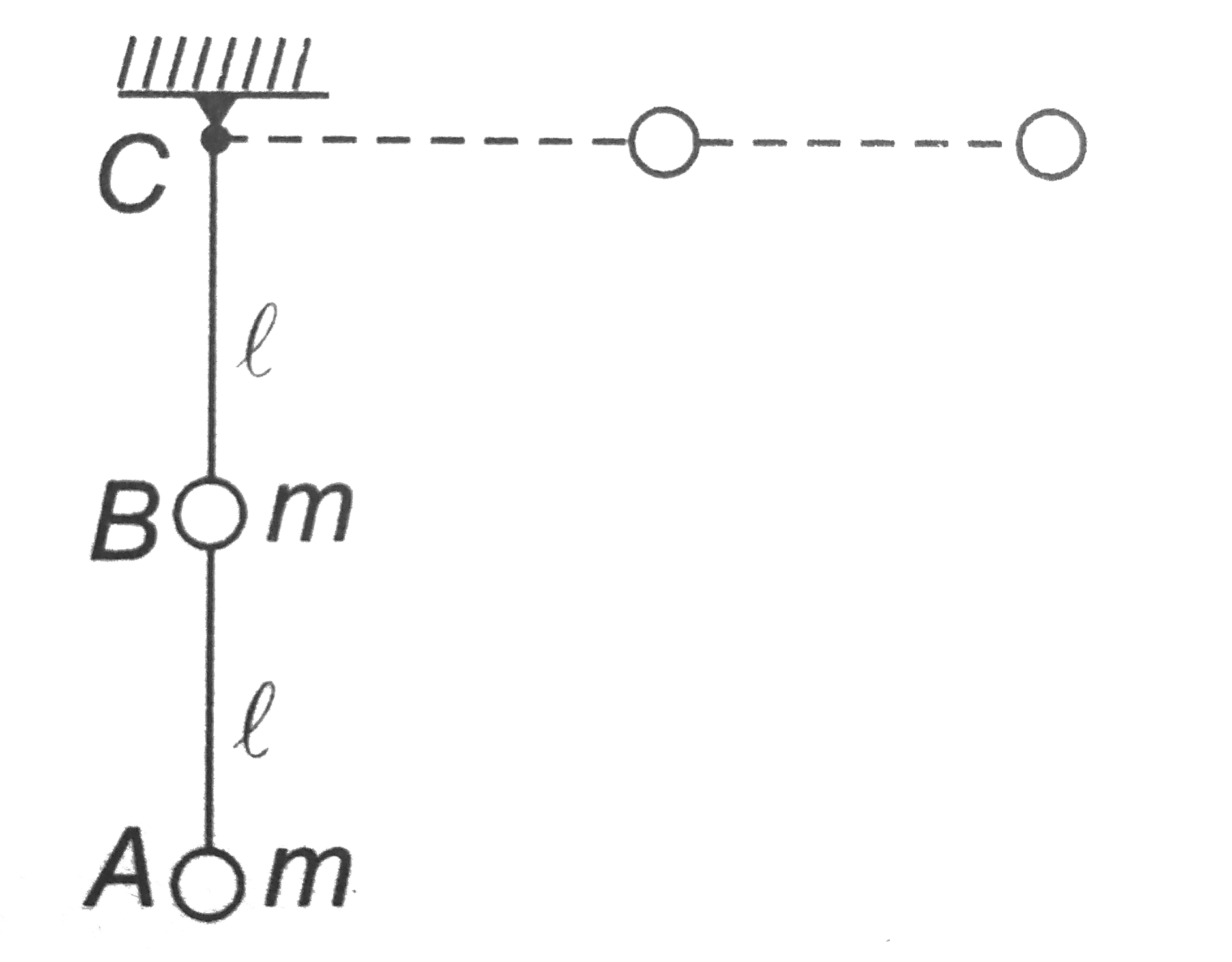 A√3gl5B√4gl5C√6gl5D√7gl5
A√3gl5B√4gl5C√6gl5D√7gl5
A uniform rod of mass m and length l can rotate in vertical plane about a smooth horizontal axis hinged at point H. Find angular acceleration α of the rod just after it is released from initial position making an angle of 37∘ with horizontal from rest?
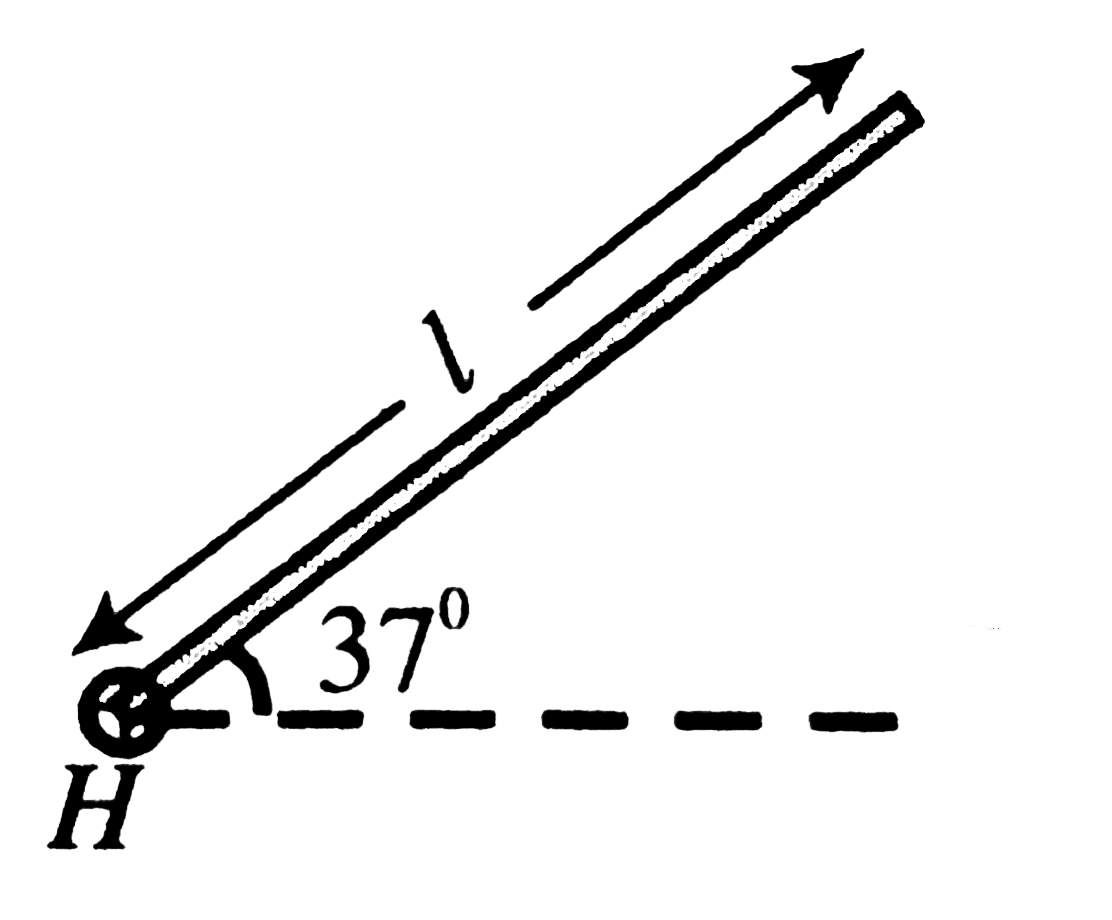 View Solution
View SolutionA particle of mass m is attached to an end of a light rigid rod of length a. The other end of the rod is fixed, so that the rod can rotate freely in vertical plane about its fixed end. The mass m is given a horizontal velocity u at the lowest point. (a) Prove that when the radius to the mass makes an angle θ with the upward vertical the horizontal component of the acceleration of the mass (measured in direction of u) is [g(2+3cosθ)−u2/a]sinθ (b) If 4ag ltu2 lt5ag, show that there are four points at which horizontal component of acceleration is zero. locate the points.
View SolutionIn the figure shown one end of a light spring of natural length l0=√58m(≈0.8m) is fixed at point D and other end is attached to the centre B of a uniform rod AF of length l0/√3 and mass 10kg. The rod is free to rotate in a vertical plane about a fixed horizontal axis passing through the end A of the rod. The rod is held at rest in horizontal position and the spring is in relaxed state. It is found that, when the rod is released to move it makes an angle of 60∘ with the horizontal when it comes to rest for the first time. Find the
(a) the maximum elogation in the spring . (Approximately)
(b) the spring constant. (Approximately)
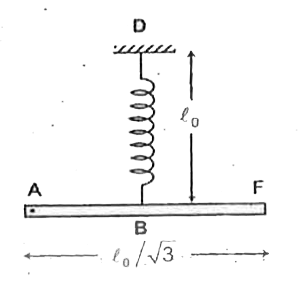 View Solution
View SolutionA vertical tower of height 20 m stands on a horizontal plane and is surmounted by a vertical flag staff of height h. At a point on the plane, the angle of elevation of the bottom and top of flag staff are 45∘ and 60∘, respectively. Find the value of h.
View SolutionA rod of mass m and length L is pivoted at the bottommost point O and can freely rotate about the point O. The rod is disturbed from the vertical position so that it starts rotating about O. When it makes an angle θ with the vertical
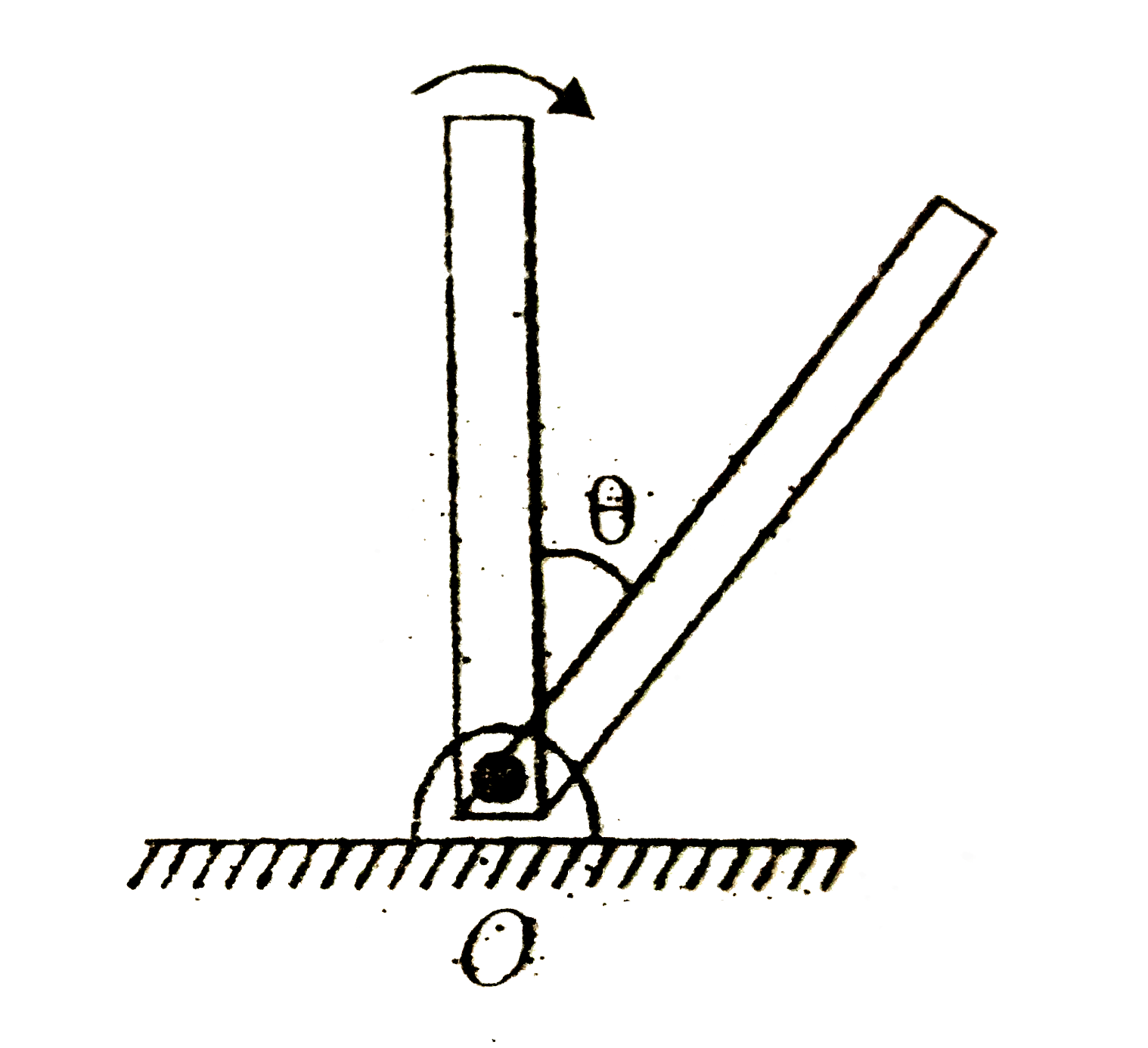 View Solution
View SolutionOne end of a uniform rod of mass M and length L is supproted by a frictionless hinge which can with stand a tension of 1.75Mg. The rod is free to rotate in a vertical plane. The maximum angle should the rod be rotated from the vertical position so that when left, the hinge does not brek is πn
View SolutionA weightless rod of length 2l carries two equal masses 'm' , one secured at lower end A and the other at the middle of the rod at B. The rod can rotate in vertical plane about a fixed horizontal axis passing through C. What horizontal velocity must be imparted to the mass at A so that it just completes the vertical circle.
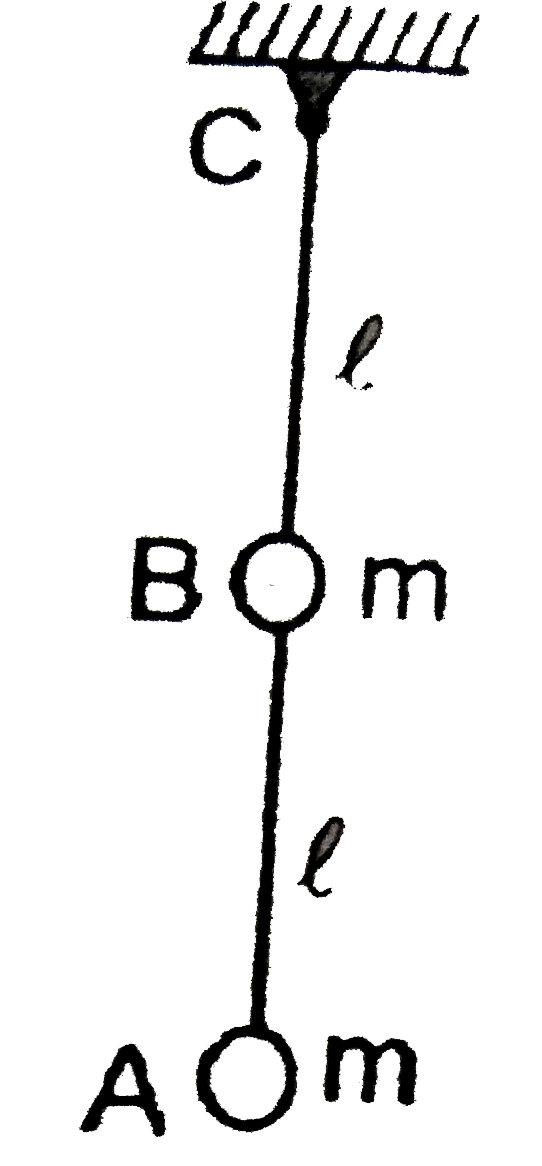 View Solution
View Solution

